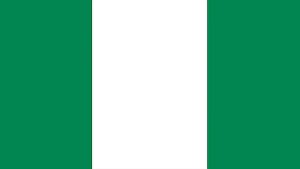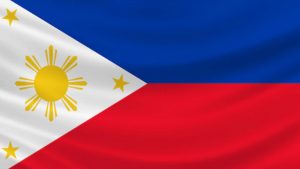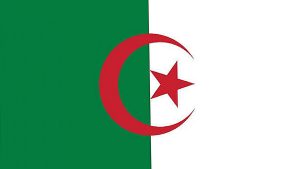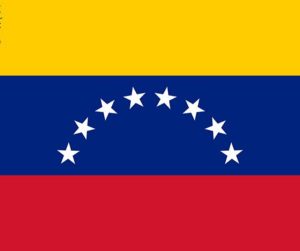Worst Countries to do Business: More companies are looking to emerging economies for development and profits as the U.S. and Europe struggle with sluggish growth. Foreign direct investment (FDI) is at historic highs in nations like Nigeria and Ukraine. Although it can be challenging to pass up the development potential offered by emerging markets, doing business successfully in many of these nations is far from simple.
We compiled a list of the nations with the greatest economy that are the hardest to do business in. Our rankings are based on the 183-country “Ease of Doing Business” research from the World Bank. The rankings take into account leading indications, including, to name a few, rules protecting investors, the simplicity of obtaining building licences, and the convenience of beginning a firm. The World Bank provided the GDP figures, while the United Nations Conference on Trade and Development (UNCTAD) provided the FDI data.
There are several economic superpowers on our list as well as some emerging nations. Find out which nations are the hardest to do business in by continuing to scroll.
Recommended: Countries With The Slowest Internet Speed In The World
Top 5 Most Difficult And Worst Countries to do Business In The World 2024
1. Nigeria: Because Nigeria is Africa’s top oil producer, many of the largest energy and resource businesses are drawn to the country. However, the country is one of the worst countries to conduct business in because of political upheaval and rising racial and religious conflicts. Nigeria has some of the worst rates in the world for obtaining power and registering real estate for businesses. It takes about three months to complete the 13 steps necessary to register a property, as opposed to one month in OECD nations.

Additionally, the oil trade has contributed to violence and corruption in the Niger delta, where major energy companies like Royal Dutch Shell have frequently been forced to halt operations because of an increase in oil thefts. Although it is an oil-rich nation, the bulk of its citizens survive on less than $2 a day and are subjected to hazardous pollution levels. Nigeria’s political unrest peaked when Umaru Musa Yar’Adua, the country’s then-president, fled without handing over control to another person to seek medical attention, leaving the country without a leader for two and a half months before an interim president was reinstated.
Also see: Hardest Musical Instruments To Play and Learn
2. Ukraine: If Ukraine were left off the list of the worst nations for business, it wouldn’t be complete. Since breaking out from the Soviet Union in 1991, the country has struggled to find a balance between trying to become more integrated into Western Europe and making peace with Russia, which met the vast bulk of its energy demands.

When it comes to things like how simple it is to pay taxes, deal with building permits, and get access to energy, to name a few, the nation is among the very worst. In Ukraine, firms must pay taxes after 27 days, and the overall tax rate is higher than 57 percent of gross revenue. In comparison to Eastern Europe and Central Asia, tax payment takes more than twice as long in the United States. Additionally, it takes more than twice as long to obtain a building permit as it does on average in OECD nations.
Additional factors that make it undesirable for business include the current conflict in Ukraine. Ukraine is no stranger to political unrest. After an allegedly rigged election brought Viktor Yanukovych to office in 2004, the “Orange Revolution” of widespread protest was sparked.
Yanukovych supported peace with Russia. In 2005, pro-Western candidate Viktor Yushchenko, who had won a second election, became president. Still, the globe still pays attention to political disputes. One of the leaders of the Orange Revolution and a former prime minister, Yulia Tymoshenko, was given a seven-year prison term after being accused of abusing her position in relation to a 2009 gas deal with Russia.
Recommended: How To Know If Someone Is Lying
3. Philippines: On the list of the countries where doing business is the most challenging, the Philippines comes in last among Asian nations. Just 2.5% of the $76.5 billion in foreign direct investment that went to the Association of South East Asian Nations’ (ASEAN) 10 members in 2010 came from it.

The nation has lagged behind its neighbours in economic progress despite possessing enormous untapped mineral resources, a crucial geographic location between Southeast and North Asia, and a sizable, expanding English-speaking population.
Foreign businesses are wary of the Philippine’s unstable legal system, violence, and bureaucracy. Its ease of doing business ranking from the World Bank fell a further two spots this year. The country also ranks among the lowest when it comes to starting a business, and resolving insolvency, with the latter taking more than five and half years, compared with an average one year and seven months in OECD countries.
Philippine leaders are having talks with The U.S., China, and Japan to push for investments, as well as to send a message that things are changing in the country, after two previous administrations were dogged by corruption allegations. Aquino’s trip to China resulted in $7 billion to $9 billion of potential investments.
Recommended: How to become a successful lawyer
4. Algeria: Some oil-rich countries made the list of the worst places to do business, and Algeria is one of them. As one of the major providers of natural gas to the European Union, its economy is largely dependent on the hydrocarbon industry. The ease of beginning a business, obtaining electricity, registering property, and paying taxes in Algeria is among the worst in the world. The average OECD country takes around a month to register a property; Algeria takes 48 days. More than five months are needed to obtain a power connection, as opposed to two and a half months in the remainder of North Africa and the Middle East.

However, Algeria’s social and political scene has benefited from the recent political upheaval in the Arab world, which caused the government to do a lot of spending. This has led to raises in the pay of public employees, hefty food subsidies, and assistance for the unemployed. The Algerian economy expanded by 3% in 2012, according to the International Monetary Fund. However, the fact that gas production from its largest oil sources has plateaued and will shortly begin to drop could pose a long-term danger to growth.
Recommended: Rarest Flowers In The World (With Pictures)
5. Venezuela: Venezuela is the most challenging country to do business in out of the top 50 economies in the world.
Regarding factors like how simple it is to pay taxes, obtain credit, have rules protecting investors, and engage in cross-border trade, to name a few, the South American country ranks among the absolute bottom. More than twice as long as it takes in the rest of Latin America and the Caribbean, businesses in Venezuela spend 864 hours a year paying taxes. Comparing the discrepancy to OECD nations, where filing taxes takes only a fourth as long, reveals an even larger difference.

Venezuela has some of the greatest oil and natural gas reserves in the world, but the majority of its citizens are poor. Hugo Chavez’s socialist revolution in the nation has resulted in several radical reforms, with the nationalisation of a significant portion of the economy, particularly the oil industry, and stringent currency controls being the most significant. For private firms, all of these pose challenges. For instance, you need to provide your signature, fingerprints, and in some circumstances, even a photo in order to withdraw money from your bank account. Daily limitations on ATMs are very stringent.
Even the most basic transactions, like groceries, need identification. Another important problem in Venezuela is inflation. The country’s economy may be spiralling out of control, as seen by the annual inflation rate of 26.5 percent for the 12-month period ending in September.
Recommended: Programming Languages To Learn For Cyber Security 2024
Conclusion
It’s critical to take into account the difficulties that some countries pose when navigating the complicated environment of international commerce. A few of the least favourable nations for business are highlighted in this blog post. Understanding these issues, which range from political unpredictability to economic constraints, can help business owners make wise decisions and develop winning strategies.

Edeh Samuel Chukwuemeka, ACMC, is a lawyer and a certified mediator/conciliator in Nigeria. He is also a developer with knowledge in various programming languages. Samuel is determined to leverage his skills in technology, SEO, and legal practice to revolutionize the legal profession worldwide by creating web and mobile applications that simplify legal research. Sam is also passionate about educating and providing valuable information to people.